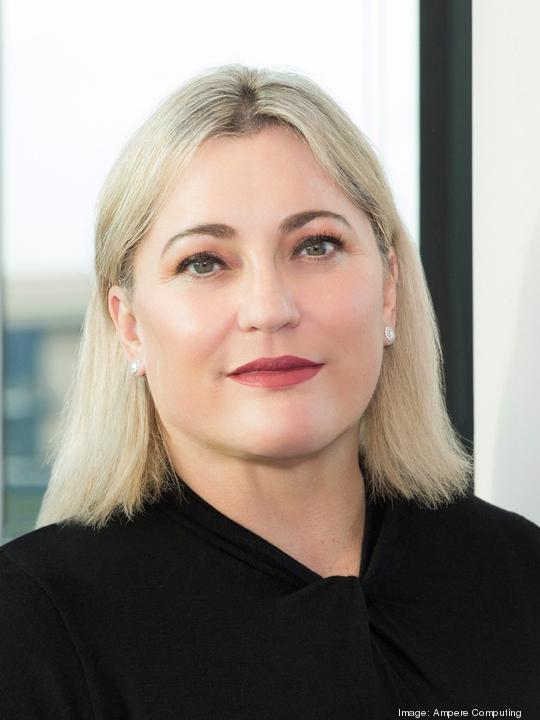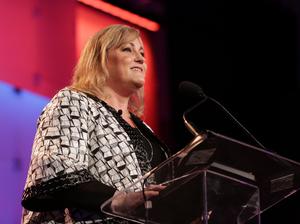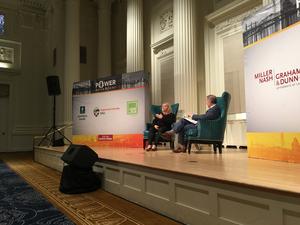
Semiconductor startup Ampere Computing unveiled its newest product this week along with an update on the company since it started selling chips to data center customers 18 months ago.
Long story short, Ampere has achieved its annual cadence of product release with two chips on the market: Altra and Altra Max. Soon it will have a third, Ampere One, which is completely in-house designed and sampling with customers.
This all means the company is ramping up its hiring across company functions and across its footprint, which includes a large growing office in Portland, said Chief Product Officer Jeff Wittich.
The company, founded in 2018, has about 1,000 global employees, with about 200 of them in Portland. It’s based in Santa Clara, California, but has leadership and a growing team here where it is tapping the region’s deep semiconductor talent pool.
Ampere was founded and is led by CEO Renee James, who spent decades at in semiconductor giant Intel Corp., and was president of the company when she left in 2016. Much of the company's leaders come from Intel (Nasdaq: INTC).
“We’ve been growing rapidly through the last couple years,” said Wittich. “We continue to add space in Portland and continue to hire at a tremendous pace. We added 50% more employees over the last 12 months to Ampere.”

In addition to looking for full-time staff, the company has dozens of internships available for this summer and fall.
Ampere makes chips aimed at data centers, particularly customers that run hyperscale data centers. These include big cloud infrastructure companies like Microsoft Azure, which is a customer. Other big names that the company unveiled as customers are Oracle, Tencent, Alibaba and CloudFlare.
Oracle is also one of the company’s big shareholders, and James sits on Oracle’s board.
Ampere’s big differentiator is that the company's chips are designed from the ground up with these cloud customers in mind. Its chips are general purpose and can run all applications in the cloud whether it's web servers, video encoding or artificial intelligence inference.
Most importantly, its products are designed for high performance and efficient energy use. In its product announcement, James said Ampere’s products can help customers meet sustainability goals as well as requirements from the growing number of ESG (environment, social and governance)-minded investors.
“Sustainability makes the move to Ampere an imperative,” James said. “As cloud demand doubles over the next few years using legacy x86 processors to meet it will require two times the power and 1.5 times the data center real estate than is already currently consumed.”
X86 processors are those made by rival Intel.
“Given the power, carbon, water and other environmental impacts of this unconstrained build out it’s just simply not an option,” she said, noting that using Ampere for the same build out could deliver twice the compute by 2025 but consume less power and real estate.
Ampere’s chips are being used in production by customers, Wittich said. The company was able to stay on track with its annual release cadence and sales despite challenges from the ongoing Covid-19 pandemic and then industrywide supply chain issues.
Despite being a startup, the company structured itself early on with scale in mind, so it had processes in place that other smaller companies may not have thought to create until they were needed. This means a senior management team with experience at bigger companies working closely with early career engineers and empowering those teams to move fast, Wittich said.
The company had redundancy and second sourcing built into its supply chain culture. He noted it is finding the balance between too much process, which slows innovation and execution, versus the startup mentality of making it up as you go along.
“(Leaders) out of really large companies and decades of experience have been key,” he said. “We aren’t surprised by a lot of things.”
In April, Ampere announced it had filed confidentially with regulators to pursue an Initial Public Offering. Ampere is backed by private equity firm the Carlyle Group. Oracle’s investment is at least $426 million, according to regulatory filings.







